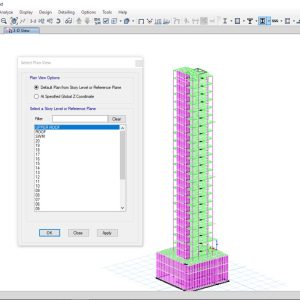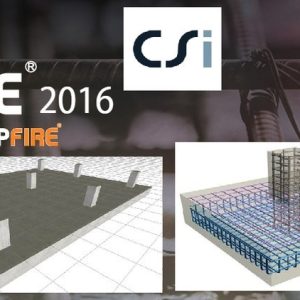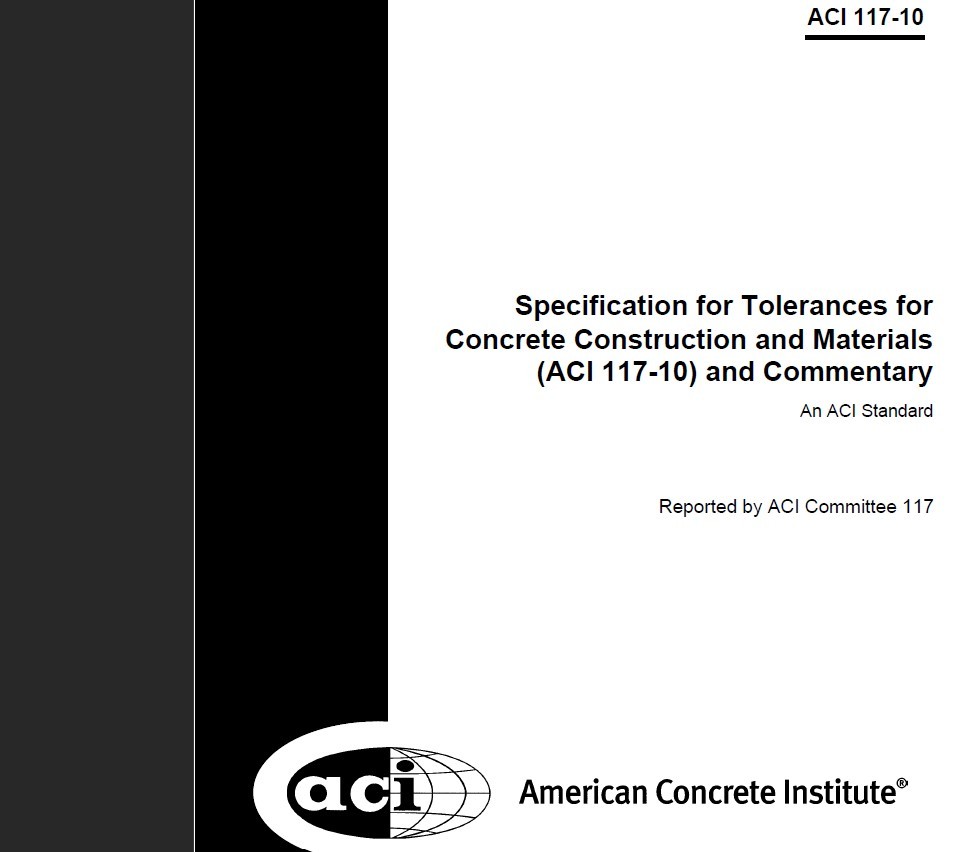Description
-
 MS Office Professional Essential Training$200.00
MS Office Professional Essential Training$200.00 -
 Primavera P6 Professional Training Course$250.00
Primavera P6 Professional Training Course$250.00 -
Product on sale
 20+ Story High Rise BuildingOriginal price was: $39.99.$9.99Current price is: $9.99.
20+ Story High Rise BuildingOriginal price was: $39.99.$9.99Current price is: $9.99. -
 CSI SAFE Essential Training Course$250.00
CSI SAFE Essential Training Course$250.00 -
 CSI ETABS Essential Training Course$350.00
CSI ETABS Essential Training Course$350.00
This commentary pertains to “Specifications for Tolerances
for Concrete Construction and Materials (ACI 117-10).”
The purpose of the commentary is to provide an illustrative
and narrative complement to the specification; it is not a
part of the specification.
No structure is exactly level, plumb, straight, and true.
Tolerances are a means to establish permissible variation in
dimension and location, giving both the designer and the
contractor limits within which the work is to be performed.
They are the means by which the designer conveys to the
contractor the performance expectations upon which the
design is based or that the project requires. Such specified
tolerances should reflect design assumptions and project
needs, being neither overly restrictive nor lenient.
Necessity rather than desirability should be the basis of
selecting tolerances.
As the title “Specifications for Tolerances for Concrete
Construction and Materials (ACI 117)” implies, the tolerances
given are standard or usual tolerances that apply to
various types and uses of concrete construction. They are
based on normal needs and common construction techniques
and practices. Specified tolerances at variance with
the standard values can cause both increases and decreases
in the cost of construction.
Economic feasibility—The specified degree of accuracy has
a direct impact on the cost of production and the construction
method. In general, the higher degree of construction
accuracy required, the higher the construction cost, and the
lower the degree of construction accuracy, the higher the
cost of required repairs.
Relationship of all components—The required degree of
accuracy of individual parts can be influenced by adjacent
units and materials, joint and connection details, and the
possibility of the accumulation of tolerances in critical
dimensions.
-
 Turnitin Instructor with AI Detection$70.00 – $130.00
Turnitin Instructor with AI Detection$70.00 – $130.00 -
 SmartPLS 4.1 Processional | Lifetime activation key$60.00
SmartPLS 4.1 Processional | Lifetime activation key$60.00 -
 EndNote Lifetime for Windows /Mac Software Full Version$8.00 – $15.00
EndNote Lifetime for Windows /Mac Software Full Version$8.00 – $15.00 -
![Specification for Tolerances for Concrete Construction and Materials (ACI 117-10) and Commentary 11 IBM SPSS Statistics v30 | v29 [Lifetime Activation with key]](https://civilmdc.com/wp-content/uploads/2022/03/IBM-SPSS-30-Key-300x300.jpg) IBM SPSS Statistics v30 | v29 [Lifetime Activation with key]$15.00 – $45.00
IBM SPSS Statistics v30 | v29 [Lifetime Activation with key]$15.00 – $45.00 -
 LinkedIn ALL COURSES LIFETIME Warranty$25.00
LinkedIn ALL COURSES LIFETIME Warranty$25.00 -
Product on sale
 REF-N-WRITE | Premium Account Lifetime ActivationOriginal price was: $45.00.$22.00Current price is: $22.00.
REF-N-WRITE | Premium Account Lifetime ActivationOriginal price was: $45.00.$22.00Current price is: $22.00. -
 QuillBot’s paraphrasing tool | Premium Account 6 month | + WARRANTY$12.00
QuillBot’s paraphrasing tool | Premium Account 6 month | + WARRANTY$12.00 -
 Grammarly Premium Account 6 Month |12 month$20.00 – $35.00
Grammarly Premium Account 6 Month |12 month$20.00 – $35.00 -
 TURNIT1N Student (Plagiarism Checker) – 6 Month | 1 Year | 2 Years | 3 Years | 4 Years | LifeTime$15.00 – $200.00
TURNIT1N Student (Plagiarism Checker) – 6 Month | 1 Year | 2 Years | 3 Years | 4 Years | LifeTime$15.00 – $200.00



 Visit
Visit 